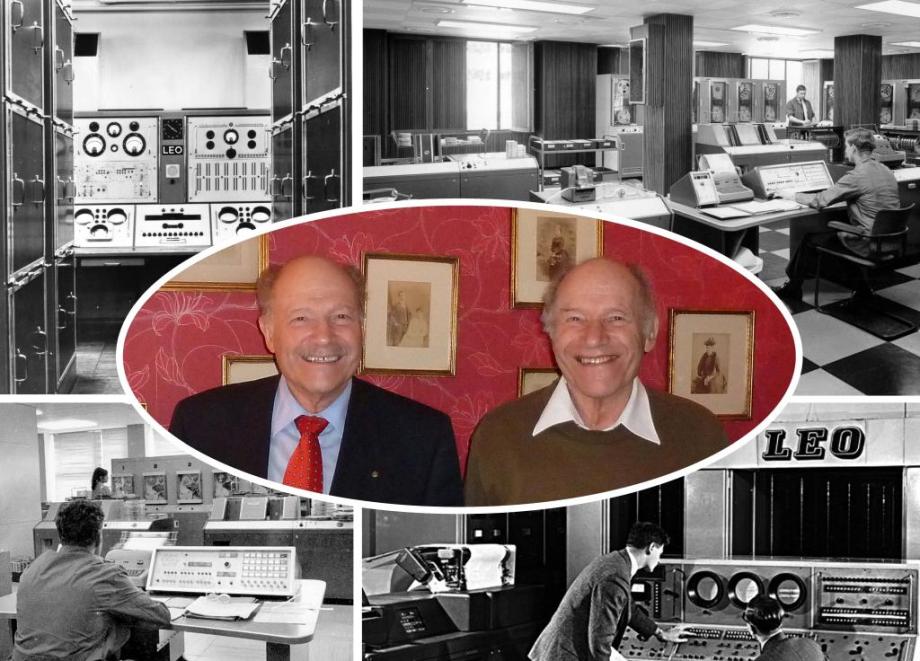The AIT Trust have provided funding for a new archivist to work at the Centre for Computing History for 2 years on their extensive and unique LEO archive. The new post is named in honour of 96-year-old twins Frank and Ralph Land, both of whom worked on LEO in its early days, dedicating themselves since retiring to ensuring LEO's pioneering work is widely recognised in the history of computing.
Funding for the new Land LEO Archivist post has provided a much-needed boost to the preservation and promotion of the history of LEO, the first computer in the world dedicated to business, which began operations in 1951. The first LEO was modelled on Cambridge University's EDSAC (Electronic Delay Storage Automatic Calculator) machine.
A grant from the National Lottery Heritage Fund first funded a project to conserve, catalogue, and digitise the LEO collection, which is housed at the Centre for Computing History in Cambridge (CCH). That project was finished in 2023 and made an excellent start, but there is more to do as the archive continues to grow in both size and historical significance. The new post, which is funded for two years by the AIT Trust, allows archival work to continue on this unique and important collection.
The post is to be named in honour of two remarkable pioneers in the history of computing, Frank and Ralph Land. Now 96 years old, the twins both worked on LEO in its very early days, starting as programmers and moving on to more senior roles. Ralph became Export Manager selling LEO machines abroad, including behind the Iron Curtain - for which he was awarded a CBE in 1995 - and Frank moved on from LEO to become an academic at his alma mater, the London School of Economics, becoming the first holder of a chair in Information Technology. Frank was awarded an OBE in 2019. After retirement both brothers have devoted themselves to ensuring that LEO’s role in computing history is widely recognised.
Catherine Griffiths, Trustee of the AITT said
‘The Trust is proud to fund this post in honour of Frank and Ralph Land. Their involvement has spanned the whole history of LEO, the first commercial computing system. This has triggered worldwide development and has increasingly been recognised as a pivotal stage in the use of computers to serve business and society.’
Peter Byford, Chair of the LEO Computers Society added
‘This is very welcome news. There is a large collection of LEO documentation at CCH which has been donated mainly by people who worked on LEO computers or by their families. It is important that this continues to be properly catalogued and digitised. This will enable researchers to investigate the LEO story, which is an important element in the World’s history of business computing.’
Lisa McGerty CEO at The Centre for Computing History, where the Land Archivist will be based, said
‘LEO’s story really is remarkable and it has been a privilege for us to work with some of the surviving pioneers in cataloguing and digitising the LEO collection. The first LEO computer was an astounding feat not just of engineering but also of vision by a company that had the foresight to recognise just how computers could revolutionise business at a time when computers as we now know them didn’t exist. Everyone should know about it and the AIT Trust's generosity will allow us to continue work on this incredible collection.’
For more information about the Centre for Computing History please visit www.computinghistory.org.uk.


